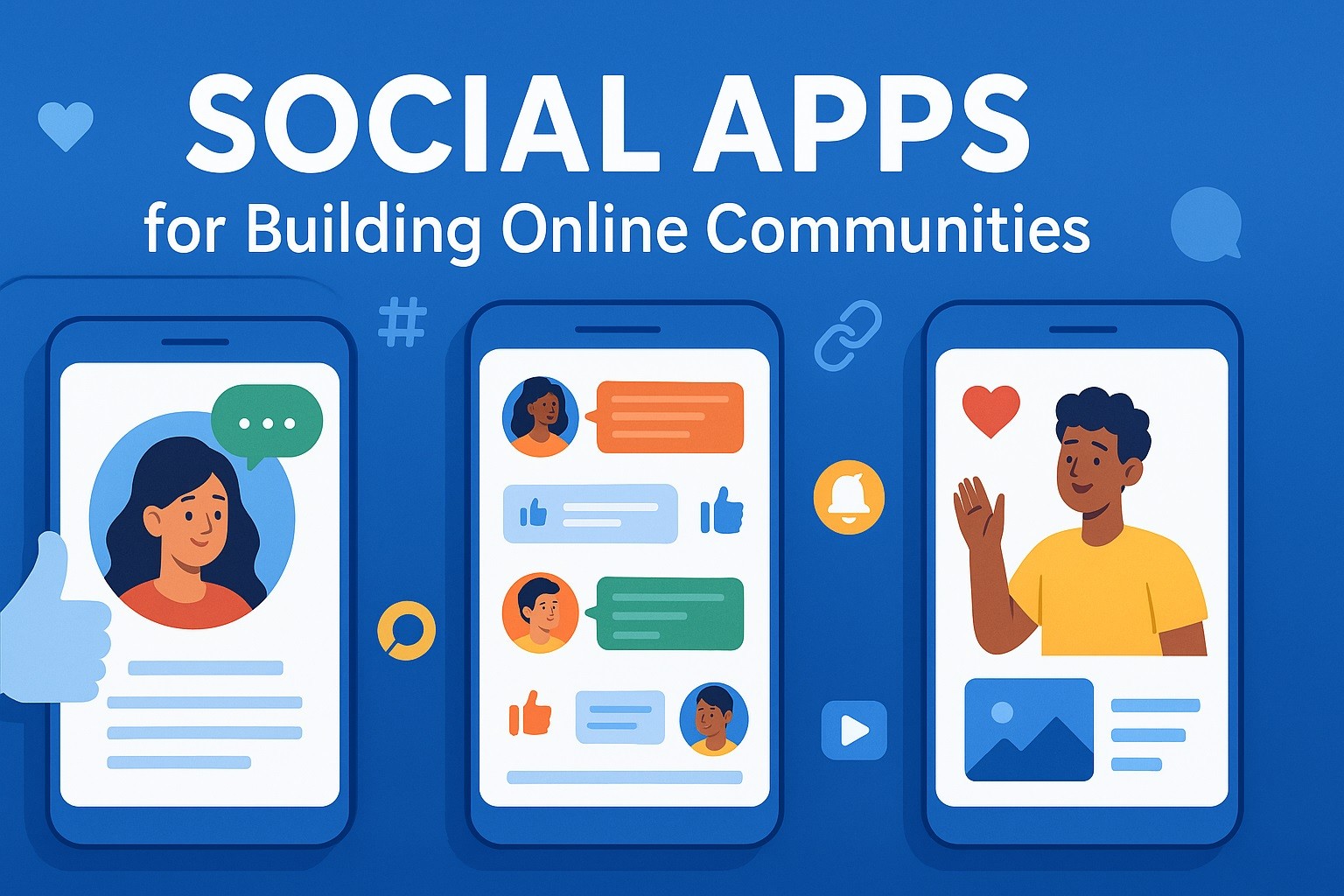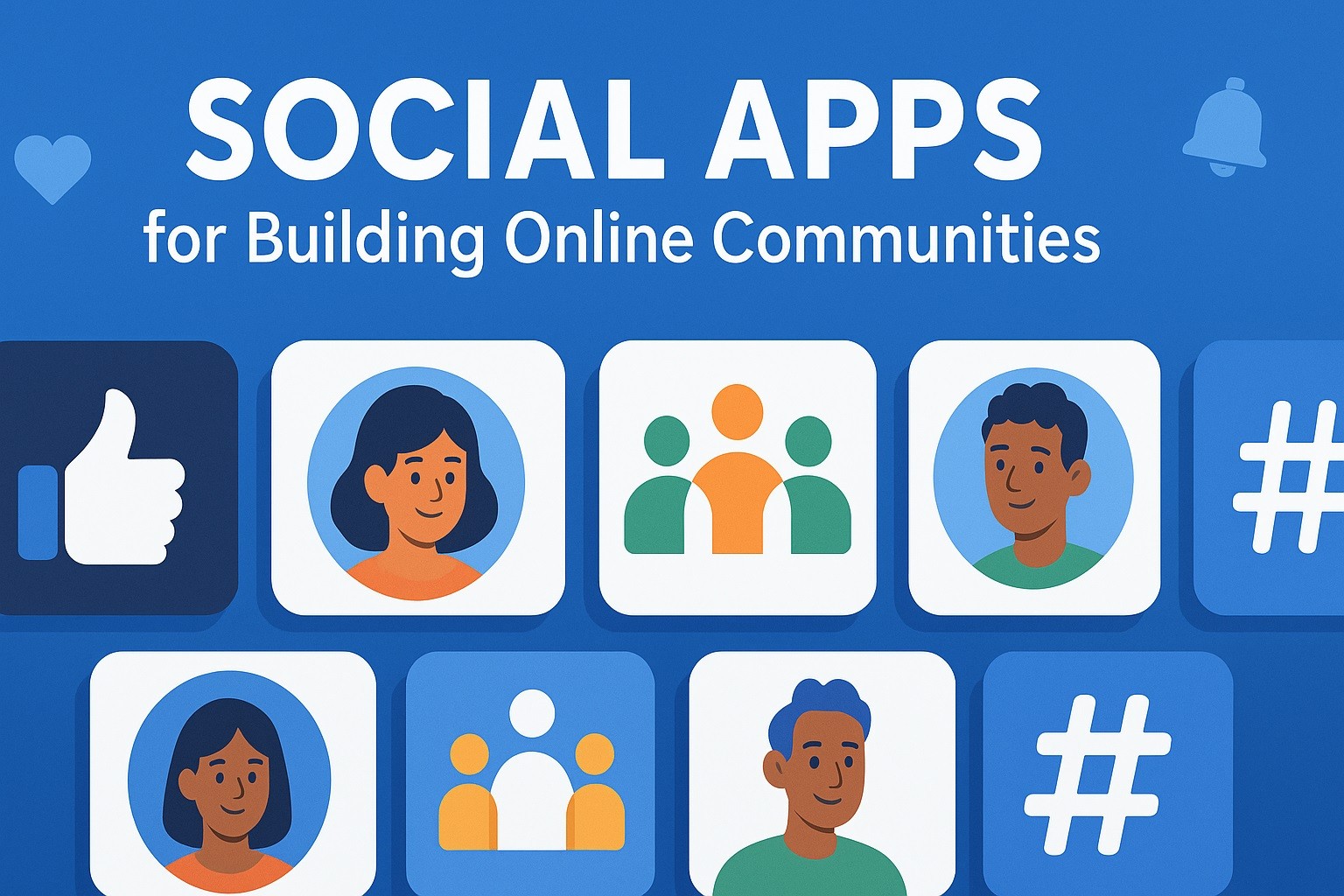If you’re looking to create or join a vibrant online community, the right app can make all the difference. The best platforms focus on interaction, customization, and shared interests.
This guide highlights top-performing and emerging social apps for building online communities with ease.
1. Discord
Discord started as a hub for gamers but has grown into a general-purpose social platform. You can build communities using servers, which act like mini social networks. Each server includes channels for text, voice, and video chat.
You can assign user roles, moderate conversations, and stream events live. Discord works well for both public and private communities. It also offers integration with bots, allowing polls, moderation tools, and auto-responses.
2. Mastodon
Mastodon is a decentralized alternative to traditional social media. Instead of one central platform, it’s made up of thousands of independent servers that connect.
You can create your server or join one that aligns with your values or interests. There are no ads or hidden content filters. It’s ideal for open, public discussion spaces where users prefer a community-run model.
3. Amino
Amino specializes in micro-communities. Each “Amino” is like a self-contained world built around a topic: anime, books, music, lifestyle, and more.
Within each Amino, users can post blogs, take quizzes, join polls, and use voice or text chat. You can create your community using the Amino Community Manager app, where you control appearance, rules, and members. It’s very popular among teens and fandom culture.

4. Swarm (by Foursquare)
This app focuses on lifelogging and local discovery. You use it to check in to real-world places and share your location with friends.
It’s built more for social mapping than chatting, but it works great for communities that form around places and movement.
Friends can see where you’ve been and share locations, helping form connections based on shared habits or venues. It’s useful for urban groups, meetups, or nightlife scenes.
5. Swsh and Status (Emerging Apps)
These new apps are gaining attention for how they apply AI in social spaces. Swsh combines event photography with location sharing. If you attend a concert or festival, you can find and share images with others.
Status offers a simulated social network filled with AI personalities. You follow characters and interact with their posts.
Both apps are targeting Gen Z and those open to more gamified or experimental community formats.
- Best for: Trend-driven users, early adopters, experimental social formats
- Available: Limited release (broader launch in 2025)
6. Mighty Networks
This is a premium platform made for creators and entrepreneurs who want full control over their community. You can combine courses, memberships, events, and discussions in one branded space.
Mighty Networks supports payment integration, live video, polls, challenges, and private groups. You can host everything under your name and domain. It’s a strong choice if you’re building a business around your community.
7. Circle
Circle is similar to Mighty Networks but designed with simplicity and business in mind. It’s clean, easy to use, and built for educators, coaches, and online course creators.
Circle also integrates with Stripe for payments, letting you manage a paid community seamlessly. You can structure your space into channels, add videos, host live streams, and offer exclusive content to members.
- Best for: Business communities, course creators, minimalist user interface
- Available on: iOS, Android
8. Higher Logic (Thrive, Vanilla)
This is an enterprise-level solution focused on professional associations, nonprofits, and large organizations.
It includes detailed analytics, custom branding, advanced moderation tools, and scalable structures.
You can create forums, organize memberships, and offer private networking spaces for your organization. It’s built to serve communities of thousands to millions.
- Best for: Associations, professional groups, enterprise networks
- Available on: Web, mobile apps
9. Skool
Skool is a community app that focuses on gamification and simplicity. You can build communities around topics, paid content, or coaching programs.
It uses points, levels, and leaderboards to keep members engaged. It supports video hosting, private group discussions, event scheduling, and member tracking. Many creators use Skool as a lightweight alternative to Facebook Groups or paid forums.

Key Factors to Consider
When choosing social apps for building online communities, keep your audience and goals in mind.
- Ease of use – Choose an app your members will adopt quickly.
- Moderation tools – Look for spam control, user roles, and reporting features.
- Monetization – If you plan to charge for access, use apps with payment features.
- Customization – Pick platforms that let you control the brand, rules, and layout.
- Engagement tools – Live events, quizzes, badges, or leaderboards boost participation.
Social Apps for Building Online Communities: Comparison
Try Amino. Running a business or paid group? Consider Mighty Networks, Circle, or Skool.
| Platform | Best For | Core Feature | Platform Type |
|---|---|---|---|
| Discord | Real-time communities | Voice/text/video chat | iOS, Android, Web |
| Mastodon | Open/public discussions | Decentralized servers | iOS, Android |
| Amino | Niche interest groups | Blogs, quizzes, chat | iOS, Android |
| Swarm (Foursquare) | Local interaction | Check-ins and maps | iOS, Android |
| Swarm (video) | Visual community bonding | Short video replies | iOS, Android |
| Swsh | Event-based image sharing | AI-assisted photo feeds | Web, Mobile |
| Status | Simulated AI community | AI-powered social network | Mobile |
| Mighty Networks | Paid memberships and courses | Events, posts, subscriptions | Web, Mobile |
| Circle | Business and creator hubs | Clean UI, payment integration | Web, Mobile |
| Higher Logic | Large-scale professional groups | Forums, member analytics | Web, Mobile |
| Skool | Small groups and coaching | Gamification, events, chat | Web, Mobile |
Conclusion: Start Where Your Community Belongs
Choosing the right social apps for building online communities isn’t about what’s trendy—it’s about what works best for your goals.
But no matter the tool, what counts most is your consistency and how well you engage people.
Try one or two platforms, test what clicks, and build from there. If your members feel seen and involved, your community will grow.









